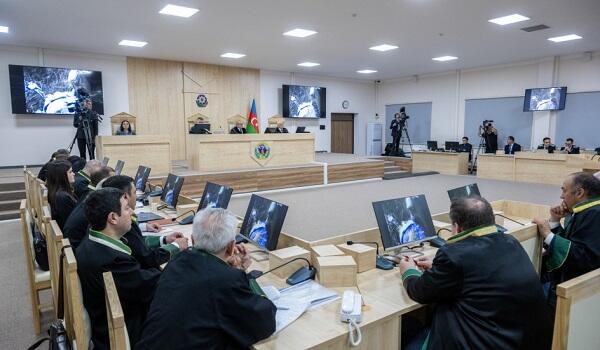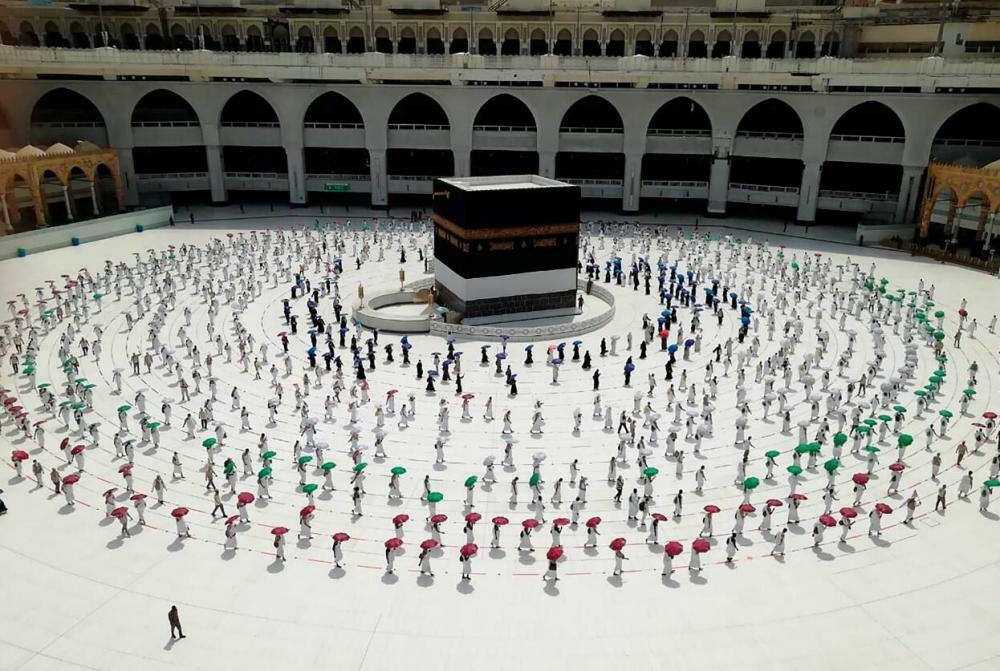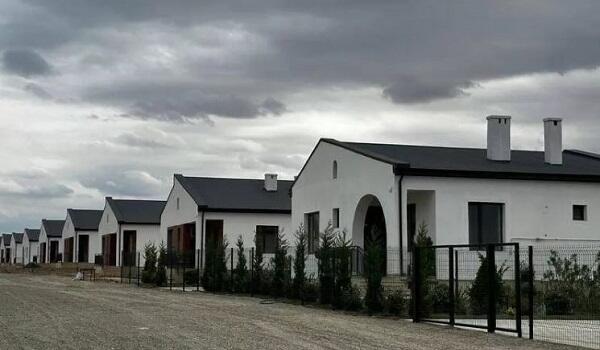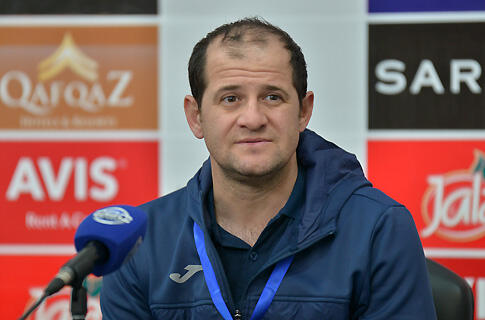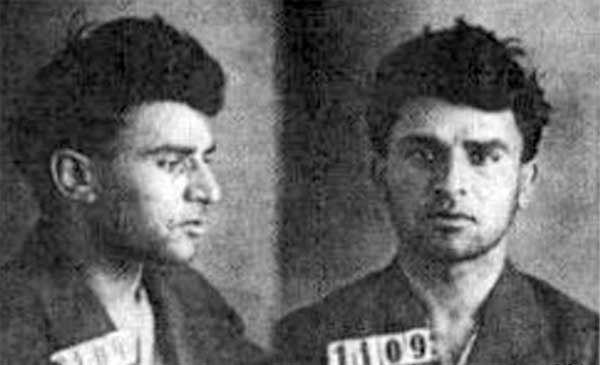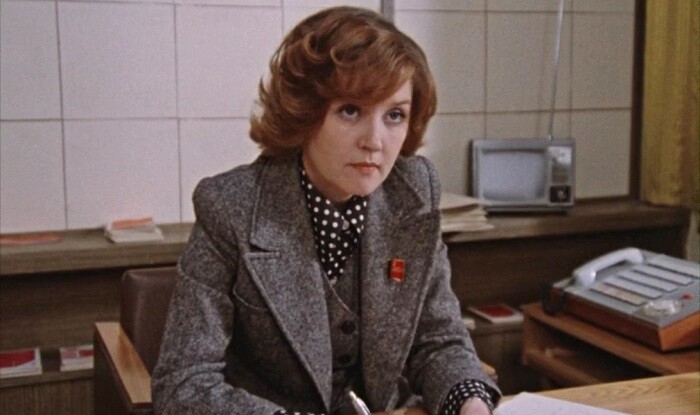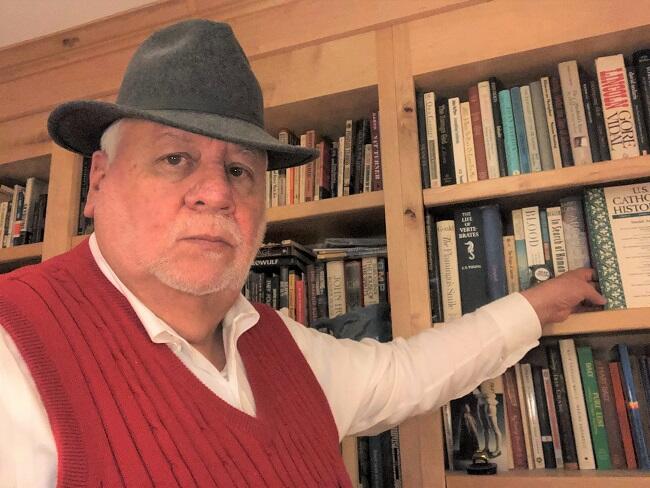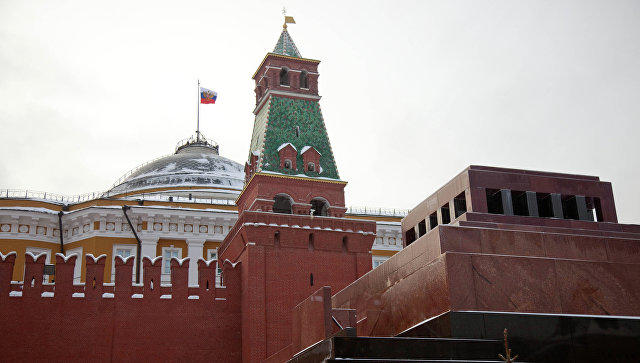In this world everything is in a state of flux, everything is changing and taking on different shapes. But it is not really changing. New generations are being born, they grow up, they take a glance at it with yearning, and grow old as they pass by… The world remains eternally young. It is always just 29. The very prime of life when dreams and desires are gushing forth…Perhaps this is why his everlasting love, Dilbar Axundzada wrote of the years she spent with him: "I recall the short period that I lived with Mushfiq as the spring of my life."
A Born Poet
Mikayil Mushfiq was born on 5 June 1908 in the town of Xizi. His uncle Mullah Ismayil was one of the progressive people of his age. His father Mirza Abdulqadir was also a literate person. As he believed that the tuition at the madrasah was not up to the requirements of the times, Mirza Abdulqadir opened a school in the hilly part of Baku, where old and new methods of teaching were combined. Young people studied there in the daytime while he taught the middle-aged and the elderly to read and write in the evenings. The writer and dramatist Cafar Qafar oglu Cabbarli (1899-1934) was one of his pupils.
Mirza Abdulqadir was an upright and benevolent person. Although he was the only bread-winner in a big family, he did not charge poor people for tuition. He paid a great deal of attention to the education of his children. But Mirza Abdulqadir did not manage to shower as much affection and education on his youngest child, Mikayil, as he would have liked, because he passed away at the age of 46 when Mikayil was only six. This was the second terrible loss that little Mikayil had endured, because his mother Zuleyxa had died when he was only six months old.
After his mother's death, his grandmother Gizqayit and his mother's uncle Cavad became the guardians of Mikayil's sisters, Beyukxanim and Balacaxanim, and his brother Mirza. Uncle Cavad's wife Gullu, who did not have any children, cared for them as if they had been her own. But the relatives could not possibly replace his own parents. Mikayil Mushfiq expressed his childhood longing that he had felt for his mother in his poems in 1927. When he was eight or nine years old he went to the madrasah school, but he didn't like it there. His relatives got worried when they heard the satirical verses that he had composed about the mullah, so his grandmother tried to teach him to be sensible: "My child, you are an orphan. Don't make problems for yourself or for us. Try to listen to the mullah; when you get angry, you're like a chip off the old block. Your father Mirza Qadir didn't care for him much either.
In 1915 he was sent to the Russo-Tatar school where he gained a primary education. When he finished the fourth class, he started to go to the Badal Badalbayli School.
Mikayil was a born poet. While he was still a child he began to compose verses. That swarthy young lad, who was a witty, cheerful, interesting story-teller, who studied hard and enjoyed helping his schoolmates, was the teachers' favourite. He would recite verses on his way home from school. His friends recited his poetry like songs.
In 1927 Mikayil began to study at the Higher Pedagogical School (now the Azerbaijan State Pedagogical University - author). The day he graduated from the university in 1931 was the most memorable in his life. He met the splendid Dilbar, who had come to the graduation ceremony with her relative, a friend of Mushfiq from the Faramooshi School. He introduced his female relative to this broad-shouldered youth with his black eyes and eyebrows and such a penetrating stare: "I'd like to introduce you to my friend Mikayil Mushfiq". This was the first time that the girl had seen the young poet, about whom she had heard so much. At that time, she learned that her uncle Idris Axundzada was a close friend of Mushfiq. Consequently, she heard Mushfiq's name mentioned in the conversations of famous poets, writers and playwrights like Huseyn Cavid (1882-1941), Ahmad Cavad (1892-1937), Abdulla Saiq (1881-1959) among others, who used to visit her uncle.
Mushfiq occupied a special place among the young poets of those years. His divine talent was so pure, unique and enormous that it was impossible not to notice it. He could neither be surpassed nor be subject to comparison. After his first poems were published in the "Ganj Isci" newspaper, he began to publish his work regularly in periodicals. A striving for life, creativity and love were the inspiration for his poems. The Soviet regime required something quite different of its poets, that they should sing the praises of the emerging working class, of collective farm construction, tractors and cotton-growers.
His acquaintance with Dilbar on that spring day blossomed into an overwhelming love. Mushfiq devoted his love poems to Dilbar. Their engagement party in April 1932 was attended by famous poets and men of letters with their wives: Huseyn Cavid with Muskunaz, Abdulla Saig with Sahrzad, Ahmad Cavad with Sukriya, the well-known singer Bul-Bul with her pupil Eloglu, Samad Vurgun (1906-1956), Suleyman Rustam (1906-1989), Mir Calal Pasayev (1908-1956), Rasul Rza (1910-1981) with Nigar, and Mammad Rahim with Milak. After they got married, the young couple moved in to a little house that Mushfiq had rented on Cadrovaya Street (now Mirza Aga Aliyev Street). They were happy although they were not very well off. Mushfiq combined a teaching job at School No. 18 with working as an editor on the "Azernasr" magazine, as well as continuing to write. Life, love and struggle were all featured in his poems.
The Sun shining from Mushfiq
They say that Mushfiq was the victim of his own talent. People were terribly jealous of him. Shining so brightly like the sun, his poetic talent left everyone else in the shade. There were attempts to get rid of him and make sure he didn't exist any more. As if deliberately, he gave them reasons to denounce him in writing and libel him. In spite of the fact that he also wrote verses singing the praises of Soviet power's achievements, he was repeatedly accused of preferring to write lyric poetry. The biggest "wrong doing" that was attributed to him was that he was friends with the supporters of the ideology of patriotism, with the freedom-loving poets like Huseyn Cavid and Ahmad Cavad. On the night of 4th June 1937, Soviet power put an end to the fate of those three outstanding Azeri poets, when they arrested them simultaneously. Mushfiq became prisoner no. 1109.
Long before he was arrested he became aware of the "feeler" of darkness stretching towards him. The People's Commissariat of Internal Affairs (NKVD) had been getting ready to arrest them for quite a few years. Specially ordered articles had been appearing in print.
Over the last five years of his life many of his fellow writers had done all they could to make the NKVD's job of eliminating Mushfiq easier. In 1937, they got what they wanted. Libellous articles began to appear in the press again. Trumped-up charges were made against him, some invented while he was in the cellars of the NKVD, others while he was still at liberty. There were close friends of Mushfiq among them. Those were difficult times. Those survived who sold their soul to the devil. People like that resorted to any form of lies and libel, just to make sure that Mushfiq did not emerge a free man. Some did it because they were afraid for themselves and their families. Others, who were not able to bear the well-honed abuse in the NKVD torture-chambers, agreed to any kind of mean tricks, even betraying themselves, just to stay alive. Even Mushfiq, who loved life so, was reduced to this in those torture-chambers. He welcomed death as a release from being tortured. He admitted that he was a member of the anti-Soviet organisation pursuing the aim of overthrowing Soviet power in Azerbaijan and was preparing for an armed uprising. The military collegium meted out the maximum sentence to Mikayil Mushfiq - execution by firing squad. The sentence was carried out on 5 January 1938. Just like Ahmad Cavad, Seyid Huseyn and others, Mushfiq does not even have a grave. He was executed on the island of Nargin and his body thrown into the Caspian Sea…
Soon after Mushfiq's arrest, his elder brother Mirza, his sisters Beyukxanim and Balacaxanim, and his 16-year-old cousin Yunis Dagly came up against the merciless laws of the Soviet regime. The poet's beloved Dilbar met a sorry fate. Her husband's friends and comrades ceased to have anything to do with her. They were all afraid to be in contact with her, because those who kept in touch with the family of "an enemy of the people" were subjected to persecution. In her book "Days with Mushfiq" Dilbar Axundzada wrote: "There was not a single close or caring person to whom I could turn at this taxing moment". But she kept her spirits up. She only gave up in despair on that day. Her last meeting with Mushfiq absolutely devastated this shocked woman, because there was no longer any trace of her Mushfiq with his fiery gaze. He tried to hide the feeling of hopelessness in his sad eyes, saying: "I shall soon be going back home" to comfort Dilbar.
"On the last day of 1937, at approximately 2 pm, the door-bell rang. A Russian woman who lived nearby opened it and two Russian men rushed into the house. They rudely announced that I had been arrested. I was 23 at the time." This is how Dilbar described the day of her arrest. Her reminiscences were recorded in a diary which she secretly kept in the Bayil prison and which Seyid Huseyn's wife, Umugulsum, later managed to smuggle out. It records that there was a terrible racket in the next cell, and they said that Mushfiq's wife Dilbar had gone mad…
They had to release Dilbar from prison. The torture had made her go out of her mind, and this was the only reason why they left her alone. Dilbar settled down to married life again, but in her heart and soul she never parted from Mushfiq. Her love and her yearning for him found its expression in poetry.
The poems "Yena o bag olaydi", "Oxu tar", "Maralim", "Yasa kenul", "Sene qurban" and "Kulaklar", which sing the praises of sincere feelings and love, have survived in memory of Mushfiq. Those who ended the poet's life when he was at the peak of his creative potential could not destroy his verses as well. The unique love felt by the poet is embodied in them.
Mikayil Mushfiq was a great thinker in his time. The memory of him lives on in his verses. Something needs to be done to ensure that young people know about him and remember him. The main aim of the Xalq bank "National Heritage" project is to contribute one's mite to that noble mission. The "Selected Works" of the great Mikayil Mushfiq, published within the framework of the project, were made public on 4 June. The collection of the poet's works is the eighth publication within the "National Heritage" project, and admirers of Mushfiq's talent were given a copy after the presentation. Books in the "National Heritage" series are being provided as a gift to establishments of higher and secondary education, to orphanages and libraries, to foundations, state institutions, to Azerbaijan's missions, embassies and consulates abroad; they are being given out free to experts on Azeri culture. The "National Heritage" project is making a major contribution to conserving the cultural heritage of the Azeri people and passing it on to future generations.



